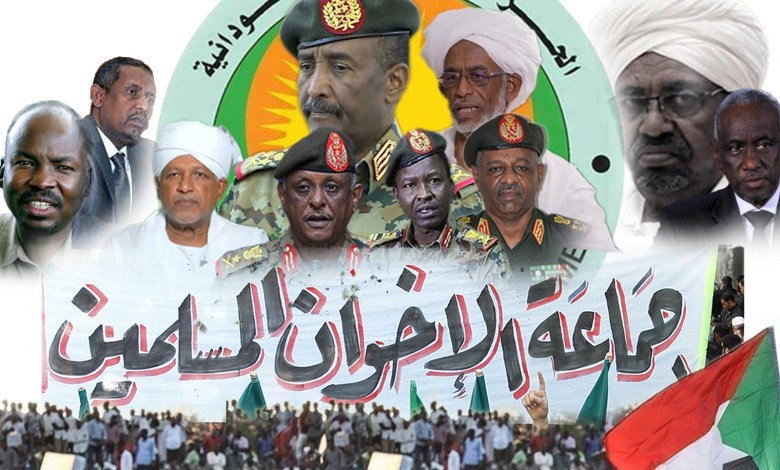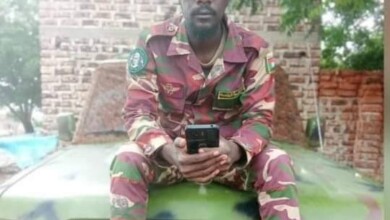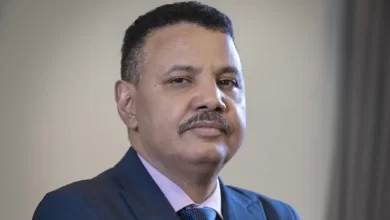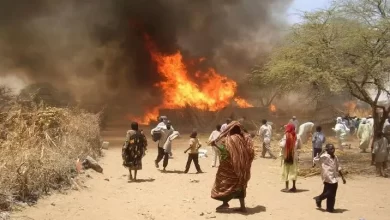What are the reasons for Al Burhan’s retraction of his statements regarding the participation of Islamists in government?

The Commander-in-Chief of the Sudanese Armed Forces (SAF), Lt. Gen. Abdel Fattah Al-Burhan, pledged a week ago not to allow the National Congress Party (NCP) to return to power, however, he suddenly retracted this pledge, which in turn clears the path for the Party to participate in political life and amass power.
This sudden change in position reflects a state of political instability in the country, as pressures on Al-Burhan are multiplying -from various political and military parties.
In a related context, observers believed that Al-Burhan’s statements -perhaps- indicate the beginning of the disengagement between the Sudanese Army and the Islamic Movement. However, his address to the fighters of (Albarq Al-khatif) Brigade -which is one of the armed groups linked to the Islamists; was rather surprising. Al-Burhan confirmed that everyone fighting alongside the Sudanese Army will have a role in any future political project, stressing that no Party will be excluded from this cooperation.
For his part, Salah Manna’, Assistant to the head of the National Umma Party (NUP), indicated that Al-Burhan is exposed to pressures that affect his statements, as he makes statements in the morning and then retracts them in the evening.
Manna’ stated via the (X) platform that Al-Burhan may have received threats from prominent figures such as Ali Karti, which prompted him to confirm that the Brotherhood and the Islamic Movement will be partners in the next government, reflecting the internal tensions plaguing the political process in Sudan.
A Political Maneuver
Political analyst Daoud Khater believed that Al-Burhan’s statements were -from the beginning- no more than a false maneuver, indicating that he wasn’t determined to prevent the Islamic Movement from participating, because he follows their instructions, to the letter.
Khater explained, in his interview with (Erem News), that the Islamic Movement won’t accept Al-Burhan’s statements in regards to preventing it from ascending to power again, even if it was merely a maneuver, because such actions re-tarnishes the Movement’s image in the eyes of the Sudanese people after it had regained strength during the war, according to their opinion.
He added that the Islamic Movement considers the continuation of the war an opportunity to restore the people’s confidence in it, however, the positive reactions from the people to Al-Burhan’s previous statements prompted the Movement to pressure him to back down.
The political analyst went on to state that the leadership of the Islamic Movement met with Al-Burhan and gave him directives, and its rather public knowledge at this point, that he has complied with their demands since he was in power after the fall of Al-Bashir.
Misleading Messages
In turn, political analyst Salah Hassan Jumaa believed that Al-Burhan only speaks on behalf of the Islamists, noting that his previous statements weren’t directed against them, but rather were directed at political forces that participated -with him- in the (2021) Coup and are currently supporting him in the war.
Jumaa told (Erem News) that Al-Burhan’s statements in regards to preventing the National Congress Party (NCP) from returning to power were an attempt to send misleading messages to regional and international powers, to show that he had abandoned the Islamists and was calling for a comprehensive national dialogue.
He pointed out that Al-Burhan was seeking, through his statements, to gain the support of the African Union (AU) to lift the suspension of Sudan’s membership in the African Union, particularly prior to the recent African summit.
The political analyst added that Al-Burhan is rather used to making promises to return power to civilians, however, he continues to put forth efforts in accordance with the Islamists’ agenda, and is supporting the continuation of the war with enthusiastic slogans.
Salah Hassan Jumaa explained that the Islamists’ reactions to Al-Burhan’s statements -noticeably- calmed down after he retracted them, as they threatened consequences if they were denied political participation.
He concluded by stating: “Al-Burhan will continue to maneuver, because he isn’t the only party in control of the decisions to command the Army, moreover, the decision is up to the Islamic Organization and the battalions fighting alongside the Sudanese Army.”
A New Roadmap
It is worth noting that Al-Burhan, in his previous statement, stressed that the fighters affiliated with the Sudanese Army “have no political ambitions,” and warned the National Congress Party (NCP) against exploiting the fighters to achieve political gains, adding: “You won’t be granted an opportunity to regain power, to rule over the corpses of the Sudanese.”
The day after these statements were made, the Sudanese Ministry of Foreign Affairs announced a roadmap for the post-war period, which includes: launching a comprehensive national dialogue for all political and societal forces, forming a government of independent national technocratic figures to manage the transitional period, making necessary constitutional amendments in accordance with the national forces’ approval, in addition to appointing a civilian Prime Minister to manage the State’s executive body without military interference.
However, in light of Al-Burhan retracting his statements, the question remains, regarding the extent of his commitment to this roadmap, and whether the Sudanese Army will remain subject to the authority of the Islamists in the future?!





